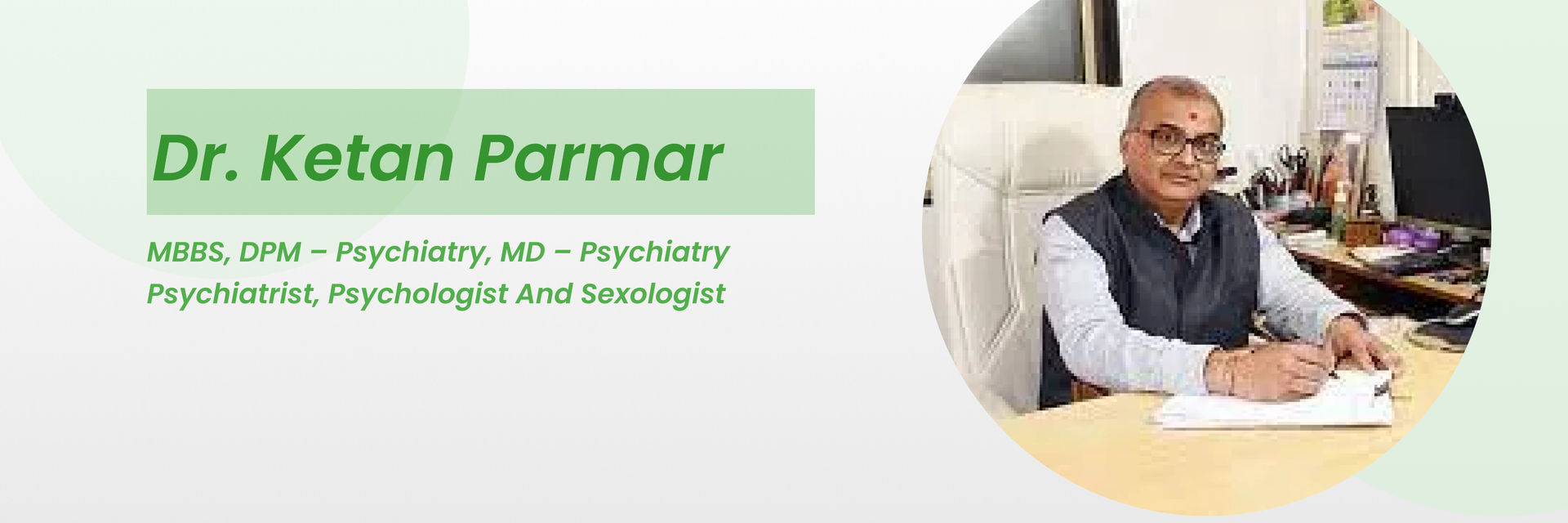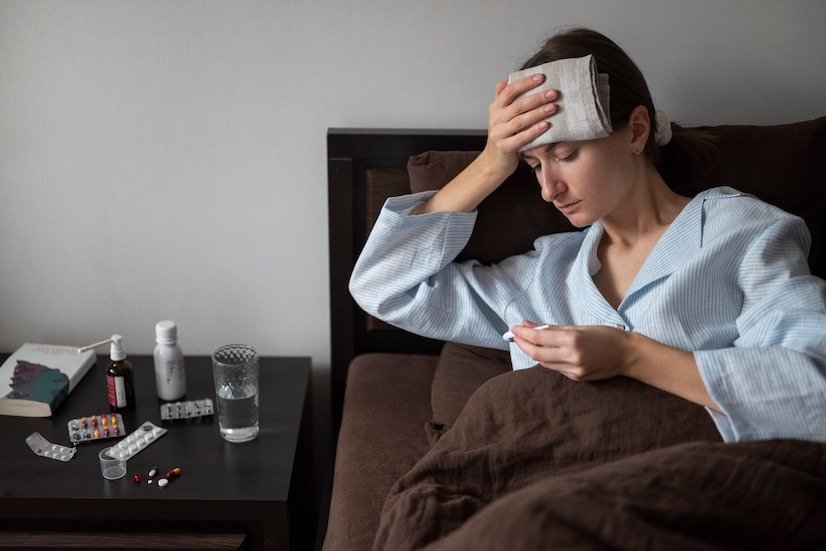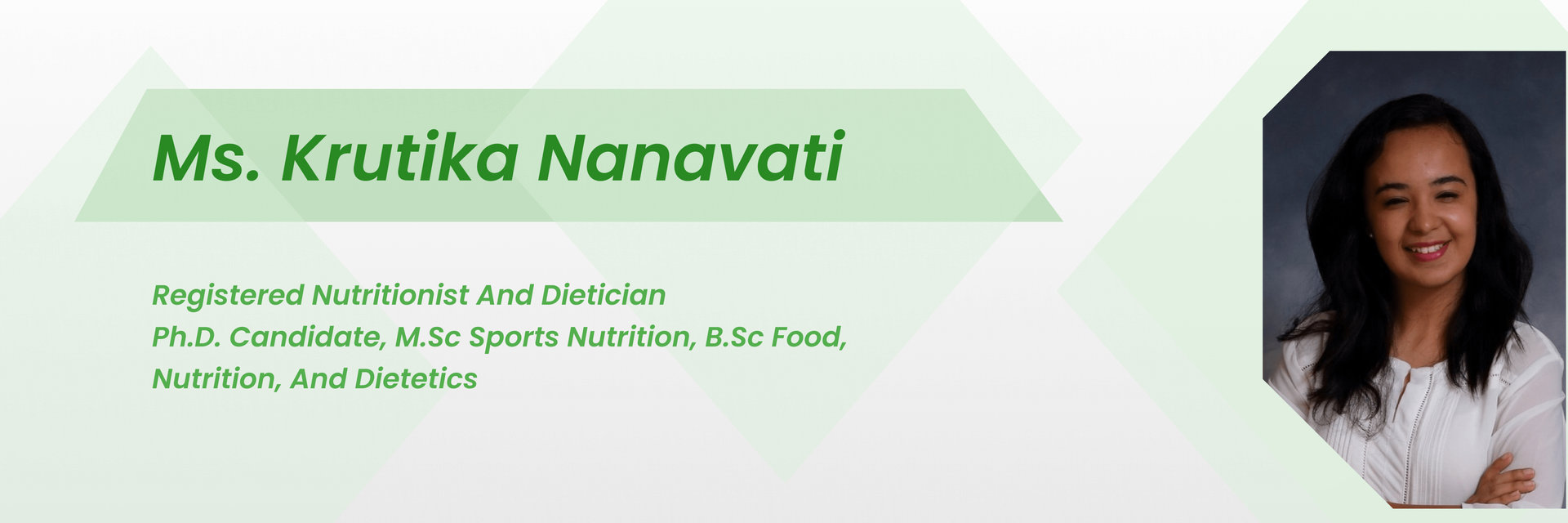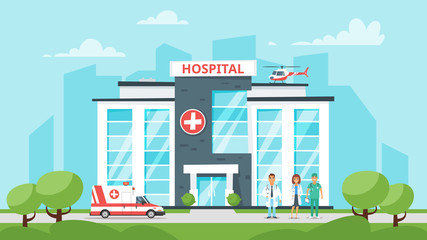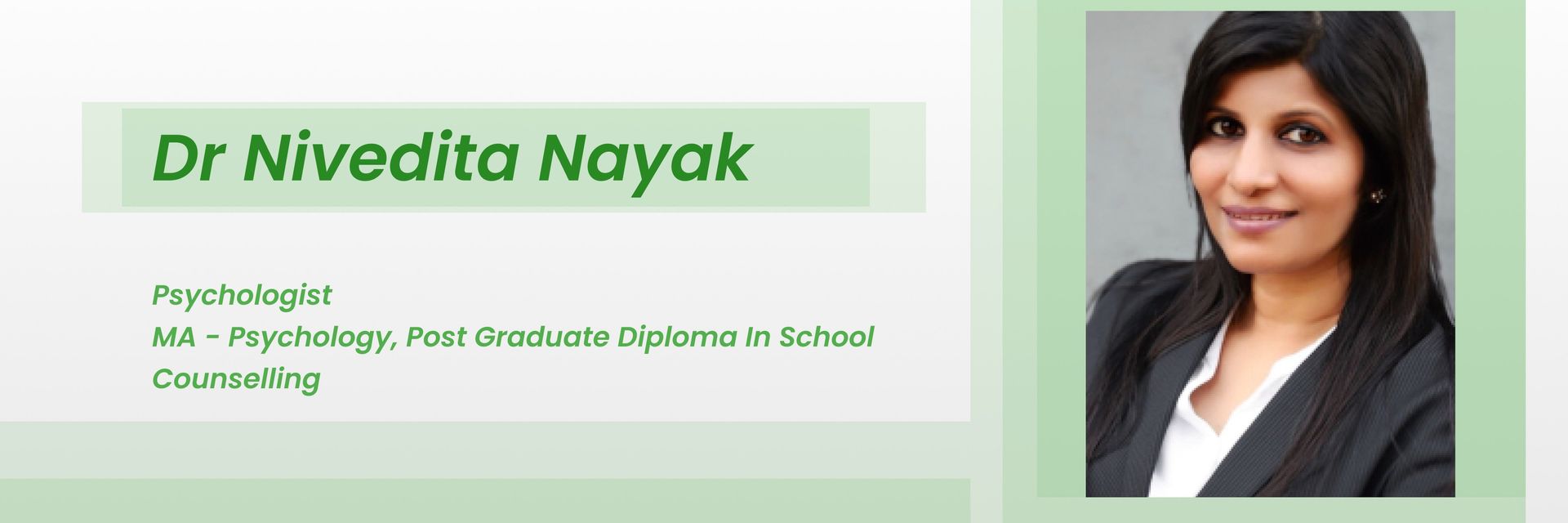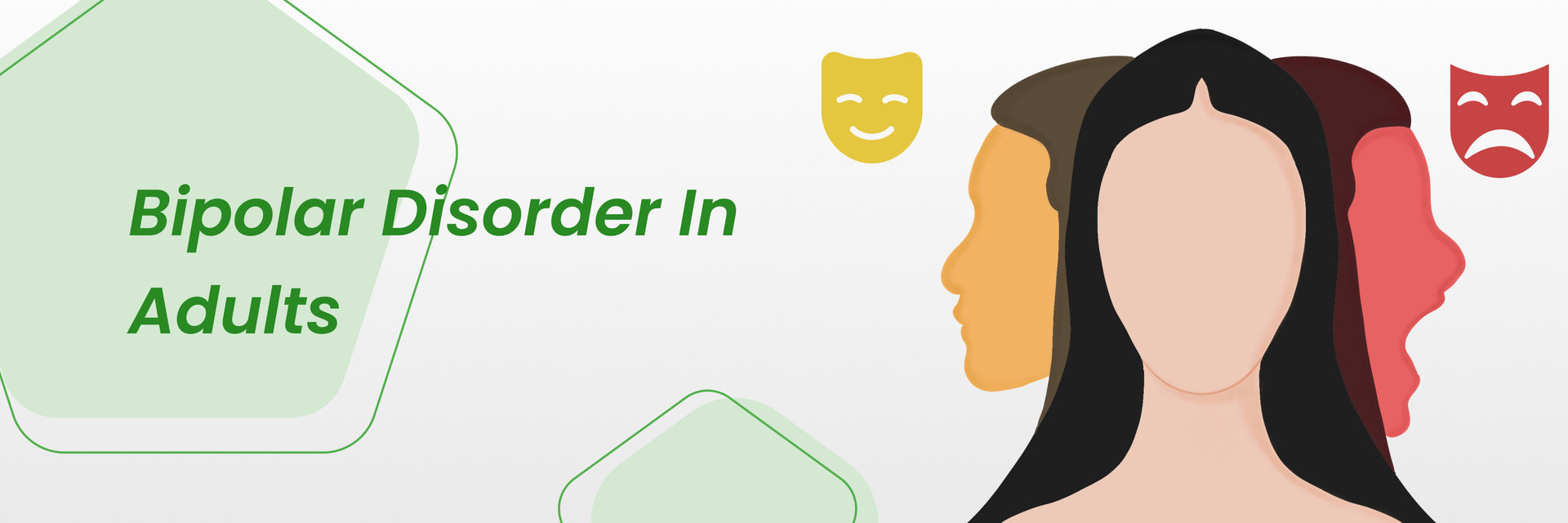The experience of having a panic attack after eating can be distressing and disruptive. It's not uncommon for people to feel anxious or even have a panic attack after eating pizza, especially when it’s high in fats or processed ingredients. For some, overeating, in general, might lead to a panic attack after eating too much, making it difficult to determine what exactly causes these distressing episodes. Understanding the potential triggers and knowing how to cope with panic attacks after eating can help you live a more fulfilling life.
In this blog post, we'll delve into the various factors that can contribute to panic attacks after eating, including physiological and psychological causes. We'll also provide practical tips and techniques to help you manage and prevent these episodes so that you can enjoy meals with confidence and peace of mind.
Let's explore this topic further to shed light on this common yet often overlooked aspect.

What are the possible causes of Panic attacks after eating?
Several factors can contribute to panic attacks and anxiety after eating. This can range from specific food intolerances to blood sugar fluctuations, leading to anxiety after meals. Some people may notice that they experience anxiety and nausea after eating, which could be due to the body's reaction to certain foods or the stress of digestion. In some cases, anxiety and sweating after eating might also occur, adding to the discomfort.
Let's take a look at the possible causes!!
1. Reactive Hypoglycemia is the drop in blood sugar levels a few hours after eating. An increase in insulin production can lead to a decrease in blood sugar levels. This causes symptoms similar to anxiety. The symptoms may include irritability, confusion, and anxiousness. Also, there can be symptoms like dizziness, shakiness, rapid heartbeat, and increased sweating. Reactive hypoglycemia is triggered by foods that are high in sugar and carbohydrates. However, alcohol or caffeine consumption on an empty stomach may also cause reactive hypoglycemia.
2. Food triggers
Some foods can cause panic attacks even if they do not cause a drop in blood sugar levels. These foods include:
- Histamine contains items like cheese.
- Cured meats and fermented foods.
- Caffeine and trans fat items.
- Refined carbohydrates like white flour and sugar.
- Alcohol.
3. Food allergies and sensitivities
Food allergies and sensitivities cause mild to severe symptoms of anxiety and panic attacks.
Food sensitivities are different from allergies. People might have food sensitivity from the following items:
- Gluten
- Dairy
- Nightshade vegetables
- Food additives like sulfites.
According to a Health reportlive, -
There is a significant difference between a panic attack and an allergic reaction. A panic attack is a sudden and intense episode of fear or *apprehension*, accompanied by physical symptoms such as rapid
heartbeat, shortness of breath, and sweating. It is typically triggered by a perceived threat rather than a physical stimulus. On the other hand, an allergic reaction occurs when the immune system reacts abnormally to a specific substance, such as *pollen*, food, or medication. This can cause symptoms ranging from mild (itchy eyes, runny nose) to severe (anaphylaxis) and can be life-threatening if not treated promptly.
Food allergies can cause severe symptoms like anaphylaxis. Other common symptoms include:
- Dizziness and lightheadedness
- Struggle breathing
- Nausea and stomach ache
- Increased heartbeat
- Low BP
4. Old eating habits anxiety: When you try to modify your eating habits, you may feel anxious about falling back into old eating habits. For instance, you decide to quit sweets, but a few days later, you crave a pastry. A pastry might not affect your long-term diet plan, and you purchase one yourself.
However, it triggered a panic attack after eating sugar, and you feel distressed about being unable to maintain your progress. You then start thinking about the possibility of being unable to control your craving and indulging in more sweets later.
5. Unpleasant experiences with food: Unpleasant experiences with food can create negative feelings and make you anxious. Suppose you fought with someone while having a particular food item. So, next time you have the same food, you may feel emotional tension and fear, even elsewhere.
Likewise, choking and having food poisoning after having a food item may bring back the trauma of that incident when trying to have the same food again later.
Also, feelings like indigestion, fullness, heartburn, or tightness in the chest can make you anxious. Although these feelings do not increase your worry or stress, they can still contribute to uneasiness after eating.
6. Eating disorders
People who have eating disorders generally experience anxiety and panic attacks after eating. Anxiety and panic attacks are indications that you may have eating disorders.
The warning signs you should look for:
- Anxiety during having meals with others.
- Feeling distressed about having food that is not considered healthy.
- Feeling guilty after having an amount of food considered as ”Too Much”.
- Anxiety after eating remains until you exercise and skip meals.
- Being very selective about eating food.
According to Candida Diet -
Hypoglycemia (low blood sugar) can sometimes cause a panic attack, especially after eating a meal. When your blood sugar levels drop too low, your body releases stress hormones like adrenaline, which can trigger symptoms similar to a panic attack such as shaking, sweating, and increased heart rate. These symptoms can be frightening and cause a person to feel like they are having a panic attack.
Eating disorders can arise from factors like low self esteem; body image concerns; weight stigma; bullying; trauma; family history.

Don’t suffer in silence, take charge of your health and your life. Contact us today for personalized treatment!
Can food allergies cause panic attacks after eating?
Yes, food allergies can cause panic attacks after eating. There are certain food items specific to each individual that cause allergic reactions and trigger panic attacks.
Panic attacks due to food allergies may have symptoms as listed below:
- Breathing difficulty
- Tightness in chest
- Rapid heart rate
- Hives and swelling
- Low blood pressure
Sometimes, the fear of allergic reactions to certain food items can also lead to panic attacks after eating such foods. This mostly happens if the person has a prior allergic experience with the same food.
If you suspect that you have a food allergy, schedule your appointment today & get proper treatment.
How much time does it take to get a panic attack after eating?
This varies from person to person and depends on a number of factors. There are cases where people get panic attacks immediately after eating, while in some cases, it may take a few hours to get a panic attack after eating.
The time of getting a panic attack after eating also depends upon the digestive system of the individual and the severity of the anxiety triggered by food.
You may take note of the timings of your panic attacks. If you notice that you are getting frequent panic attacks after eating or after eating certain food items, it is time to discuss it with your doctor.
It is really important to note symptoms. Read below to analyze if you have any of these. It will help you take preventive actions before things get out of control!!

What are the symptoms of panic attacks after eating?
Panic attacks can have different symptoms for different individuals. However, you can look for these symptoms if you are feeling uneasy after eating:
- Nausea and irritability
- Lack of concentration
- Fatigue and muscle tension
- Having difficulty falling asleep
- The feeling of worry and tension
- Excessive sweating
- Increased heart rate
- Falling short of breath
- Trembling
- Choking sensations
- Feeling scared or doomed
Are you wondering how anxiety and digestive issues are linked? Read ahead to get the answer!

Is there a link between anxiety and digestive issues?
There is a significant connection between the gut and the brain, which creates a link between anxiety and digestive issues. We use expressions like “Gut-wrenching” experiences and feeling butterflies in the stomach. These are not arbitrary; there is a reason we use them. Our gastrointestinal tract is responsive to emotions. Feelings like anger, sadness, anxiety, or happiness can trigger symptoms in the gut. The gut and brain are closely connected. Troubles in either of these can send signals to the other. This means issues with your gut are a result of anxiety or distress.
That is why you may feel nausea or stomach pain during stressful times. However, this does not mean that GI conditions, like irritable bowel syndrome, are imaginary or not real. Psychological and physical factors together contribute to symptoms in the gut.
Stress, depression, and other psychological factors affect GI contractions. This results in digestive issues. Also, people with GI disorders feel more pain because their brains are more responsive to pain signals from the gut. Stress makes the pain worse.
Now that you know the symptoms and causes. Learning about the treatments is equally important. Learn about the various treatments below!

What are the treatments, and how do you manage panic attacks after eating?
Understanding the connection between food and anxiety attacks after eating is crucial for managing these symptoms. By identifying trigger foods, such as those causing a panic attack while eating, and making dietary adjustments, one can significantly reduce the likelihood of experiencing anxiety after eating food. There are various kinds of treatment available to reduce panic attacks. These treatments can help in reducing the effect and frequency of panic attacks. This significantly improves the quality of life. The type of treatment depends upon your preference, history, and severity of attacks.
The following treatments are available for treating panic attacks after eating:
1. Psychotherapy - This, also called Talk therapy, is one of the effective treatments for panic attacks. This helps you understand the panic attacks and cope with them better. Cognitive behavioral therapy is a type of psychotherapy that can help you learn and realize through your experiences that panic attacks are not dangerous. Your therapist will re-create your panic symptoms until they no longer feel scared. The treatment takes time and effort but shows significant results in due course of time.
2. Medications- Medications can help with panic attacks and depression. Different types of medication can be used:
- selective serotonin reuptake inhibitors (SSRIs)- These are the first and safest choice to treat panic attacks. The FDA approves these. Fluoxetine (Prozac), paroxetine (Paxil, Pexeva), and sertraline (Zoloft) are some examples.
- Serotonin and norepinephrine reuptake inhibitors (SNRIs)- These are a kind of antidepressant. The FDA also approves these for treating panic disorders.
- Benzodiazepines- These are CNS depressants. These drugs also have FDA approval for panic disorder treatments. However, these medicines are prescribed for the short term as they can become a habit. They can also have side effects as they can react with other drugs.
3. Other ways- Some other daily habits can help manage panic attacks after eating. Yoga, deep breathing, and regular exercise can help in reducing stress. Alcohol, caffeine, and smoking are panic triggers. Avoiding these can also help in reducing panic symptoms.
Please Note: We do not promote the use of drugs or medications. It is recommended that you seek help from a doctor before taking any medications.

What are some common foods that can trigger panic attacks?
Certain foods can affect our mood and mental health. Research studies have identified some common foods that can cause or worsen symptoms of anxiety, depression, and other mental health conditions. However, triggers and symptoms may vary from person to person.
- Caffeine - found in coffee, tea, chocolate, and a few sodas. It can stimulate and increase heart rate. This causes feelings of anxiety.
- Alcohol- Drinking alcohol can worsen anxiety symptoms. This may also interact with medications used to treat panic disorder.
- Foods are high in sugar or refined carbohydrates- These foods can cause crashes in blood sugar levels, leading to anxiety.
- Fried or junk foods- Eating high-fat or fried food causes digestive issues. This triggers anxiety in some people.
- Processed food- items like canned soups and cured meats. These actions cause anxiety by increasing your BP and releasing adrenaline.
- Food additives- like aspartame, MSG, and certain dyes have been linked to anxiety. They are commonly found in processed foods, snacks, and drinks.
Are there any chances of relapse after treatment?
There is always a possibility of relapse after treatment for panic attacks after eating. However, with proper treatment and management strategies, the risk of relapse can be minimized. It's important to continue practicing healthy habits. Also, make sure to regularly attend therapy or medication appointments as prescribed by your healthcare provider.
References:
https://www.health.harvard.edu/diseases-and-conditions/the-gut-brain-connection
https://www.nhsinform.scot/healthy-living/mental-wellbeing
